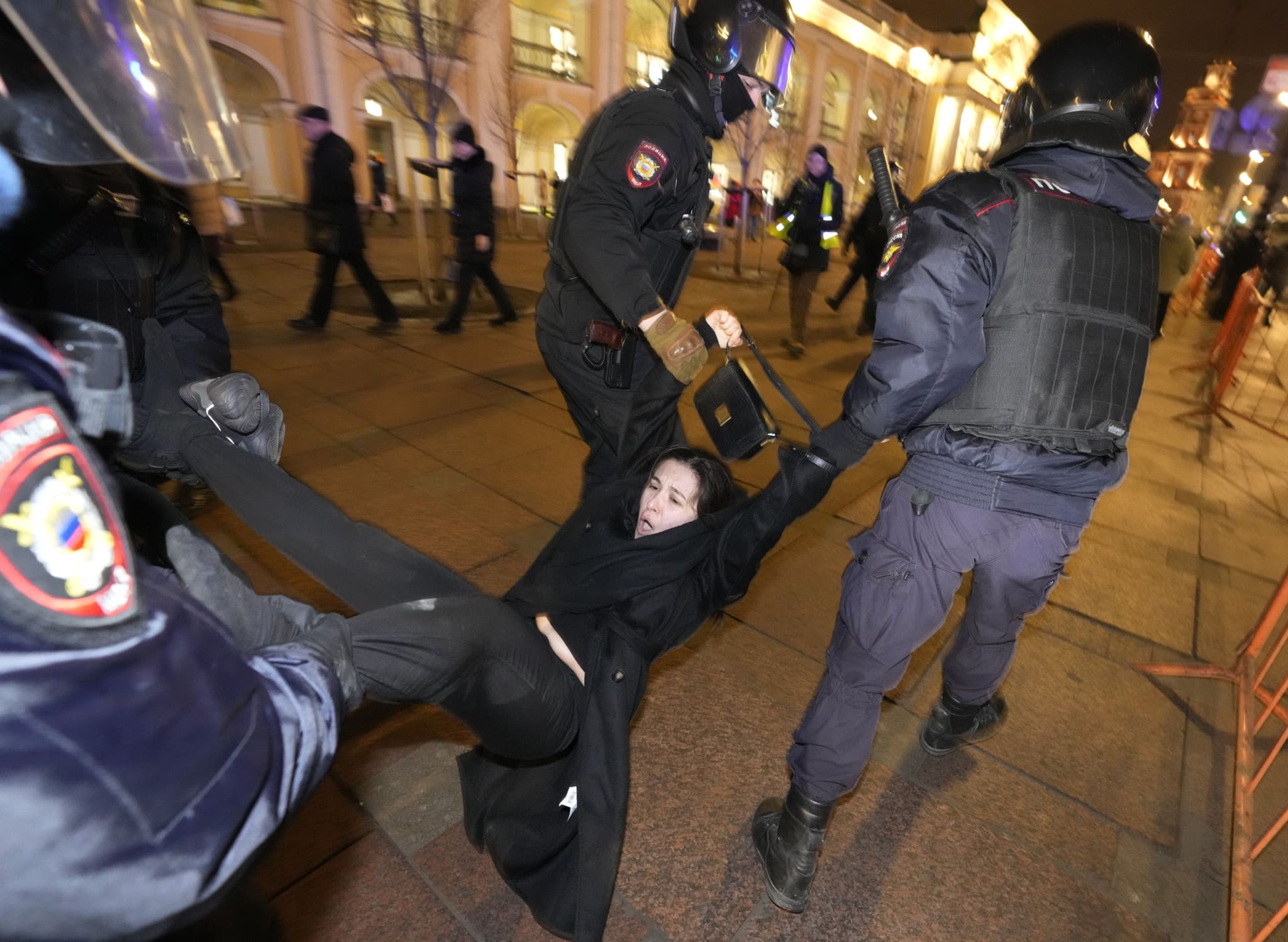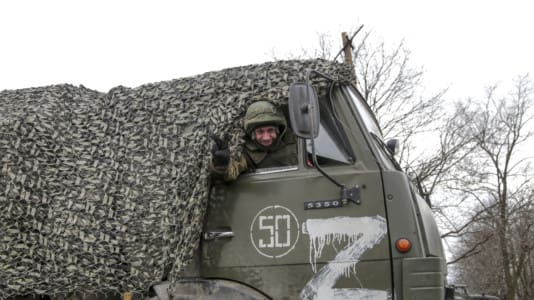Russian authorities detained more than 5,000 protesters who attended anti-war rallies across the country on Sunday, according to human rights groups.
Figures published by OVD-Info, an organization described by Reuters news agency as an “independent protest monitoring group,” showed arrests had taken place across several Russian cities, with the latest figure for total arrests on Sunday reaching 5,020.
Footage circulating on Twitter — a platform which has been severely restricted by the Kremlin since Russia’s invasion of Ukraine — purported to show heavy-handed Russian authorities tackling protesters to the ground in St. Petersburg, as police use stun guns and batons to detain those opposing the war.
OVD-Info reported that wide-scale protests had taken place in Moscow, St. Petersburg, Yekaterinburg and in “66 other Russian cities,” as ordinary Russians showed their disapproval of the Kremlin’s war in Ukraine. However, Tass, a leading news agency in Russia, made no reference to the rallies or subsequent detainment of protesters on its homepage on Monday.
“The screws are being fully tightened — essentially we are witnessing military censorship,” Maria Kuznetsova, OVD-Info’s spokeswoman, said by telephone from Tbilisi as reported by Reuters.
“We are seeing rather big protests today, even in Siberian cities where we only rarely saw such numbers of arrests,” she added.
Putin remains hugely popular in Russia, with 69 percent of Russians approving of him before the war was launched, according to independent polling data, which is far higher than any other Western political leader. Polling also shows that a majority of Russians may be in support of the war in Ukraine, but polling data from the Levada Center, which is often cited by Western press outlets as a reliable source of data. Nevertheless, unprecedented sanctions designed to cripple the Russian economy could make a major dent in Putin’s popularity and shrink support for the war.
Economically, politically and culturally, Russia has become a pariah state in the eyes of the West, as Western governments and corporate America sever ties with the country.
Sanctions imposed on Russian banks and billionaire oligarchs with known ties to the Russian president have seen the assets of prominent Russian businessmen frozen across the European Union, the U.K., and the United States. The Russian central bank responded to economic pressures last week by increasing interest rates to 20 percent, a move that will prove to be terminal for a number of Russian homeowners.
Meanwhile, Mastercard and Visa have suspended the issuance of new cards using their payment systems across Russia; Apple Pay has limited its services to Russians; Russian-owned aircraft have been banned from airspace across Europe; and even culturally, streaming website Netflix and popular social media platform Tiktok have restricted their services to Russians, in addition to Disney and Warner Bros. pulling new releases from Russian screens.
The transport of freight to Russia with the exception of food and medicine has also been halted by the world’s largest shipping companies with Maersk MSC, and CMA CGM all suspending deliveries to Russian ports.
A third round of negotiations are expected to take place on Monday between Ukrainian and Russian delegations in Belarus, in which regional ceasefires are expected to be at the top on the agenda following Ukrainian outrage at Russia’s proposed humanitarian corridors, the majority of which only provide safe routes for refugees to either Belarus or Russia.




